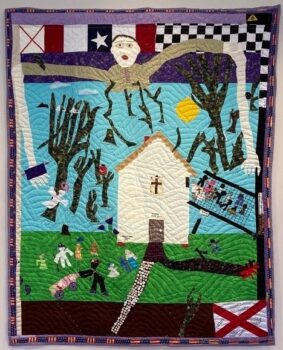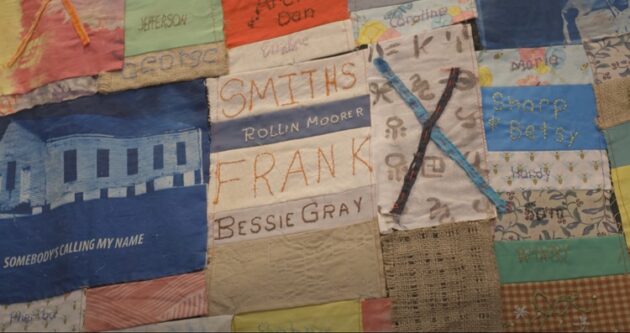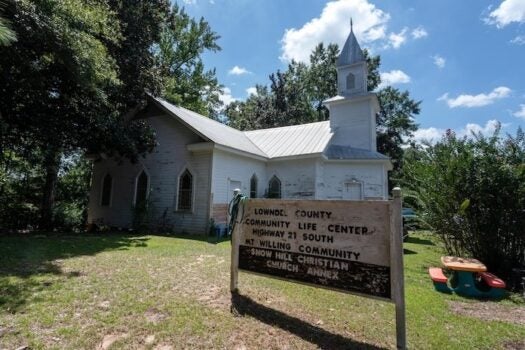Mount Willing Quilt Exhibition Opening in Camden
Published 8:00 am Sunday, February 18, 2024
|
Getting your Trinity Audio player ready...
|
Through a collaboration with Black Belt Treasures Cultural Arts Center (BBTCAC) and Wilcox ArtWorks (WAW), the Mount Willing Quilters from Lowndes County will exhibit their work, to include the “Sew Their Names Project,” Feb. 22 through March 9, at The Gallery on Broad in Camden.
The exhibit will open with a reception and artist talk on Thursday, Feb. 22, from 5:30 – 7:30 p.m.
The artist talk will feature select Sew Their Name Project artists and organizers. The exhibition will include quilts from Mount Willing Quilters Yvonne Wells and Wini McQueen.
Lowndes County Quilters meet at the Lowndes County Community Life Center at 126 Snow Hill Drive in Fort Deposit. The effort’s website describes the project and describes the inspiration behind the initiative design to foster community and to honor enslaved persons who lived in the antebellum Black Belt areas of Alabama.
“A quilting project in the rural Black Belt of Alabama brings communities together in the spirit of truth and reconciliation to commemorate the erased and forgotten lives of enslaved persons by stitching their names into memorial quilts and telling the history of the Southern antebellum church’s support for slavery,” the website reads.
Project organizers said that In November 2021, quilters in the small, unincorporated town of Mount Willing, in rural Lowndes County, came together to embroider names on 3” x 5” fabric blocks in the outdoor pavilion at the Snow Hill Christian Church. But the Mount Willing Quilters were not sewing the blocks for their customary bed or lap quilts, which they donate to charity as part of a quilting ministry begun in 2005 through Snow Hill’s partner, the Lowndes County Community Life Center (LCCLC).
“Instead, on this sunny November day, they were sewing the names of enslaved persons, including those of some of their own ancestors, for use in a very different kind of quilting project,” the site describes. “Most of the slave names that the quilters were embroidering had never before been seen by the descendant community or the general public. They were buried in old microfilms and a few ancient record books in the special collection of the Samford University library.
“Rev. Dale Braxton and Judge Susan Russ Walker, then a U.S. Magistrate Judge for the Middle District of Alabama, wanted to find a way to honor these individuals and ensure that their names would not remain invisible. That’s when they thought of the Mount Willing Quilters. Led by Rev. Braxton—and spurred on by the racial reckoning brought about by George Floyd’s death, which popularized the phrase, ‘Say Their Names,’ coined to bring attention to victims of racial injustice—the quilters took up the challenge of embroidering these previously erased names on fabric quilt blocks, and asked others to join them. This was the beginning of the Sew Their Names Project.”
The Sew Their Names Project is made possible by grants from The Black Belt Community Foundation, the Alabama Humanities Alliance, The Alabama State Council on the Arts and the Central Alabama Community Foundation. Research support for the project was provided by the Gilder Lehrman Center for the Study of Slavery, Resistance, and Abolition at Yale University. Special thanks to Mallory Morgan, assistant Sew Their Names project manager, and Gail Andrews, quilt scholar and Director Emerita of the Birmingham Museum of Art.
Partial funding for this exhibition was made possible through the Alabama State Council on the Arts. To learn more about this important project, visit: https://www.hopewellproject.net/sew-their-names.








